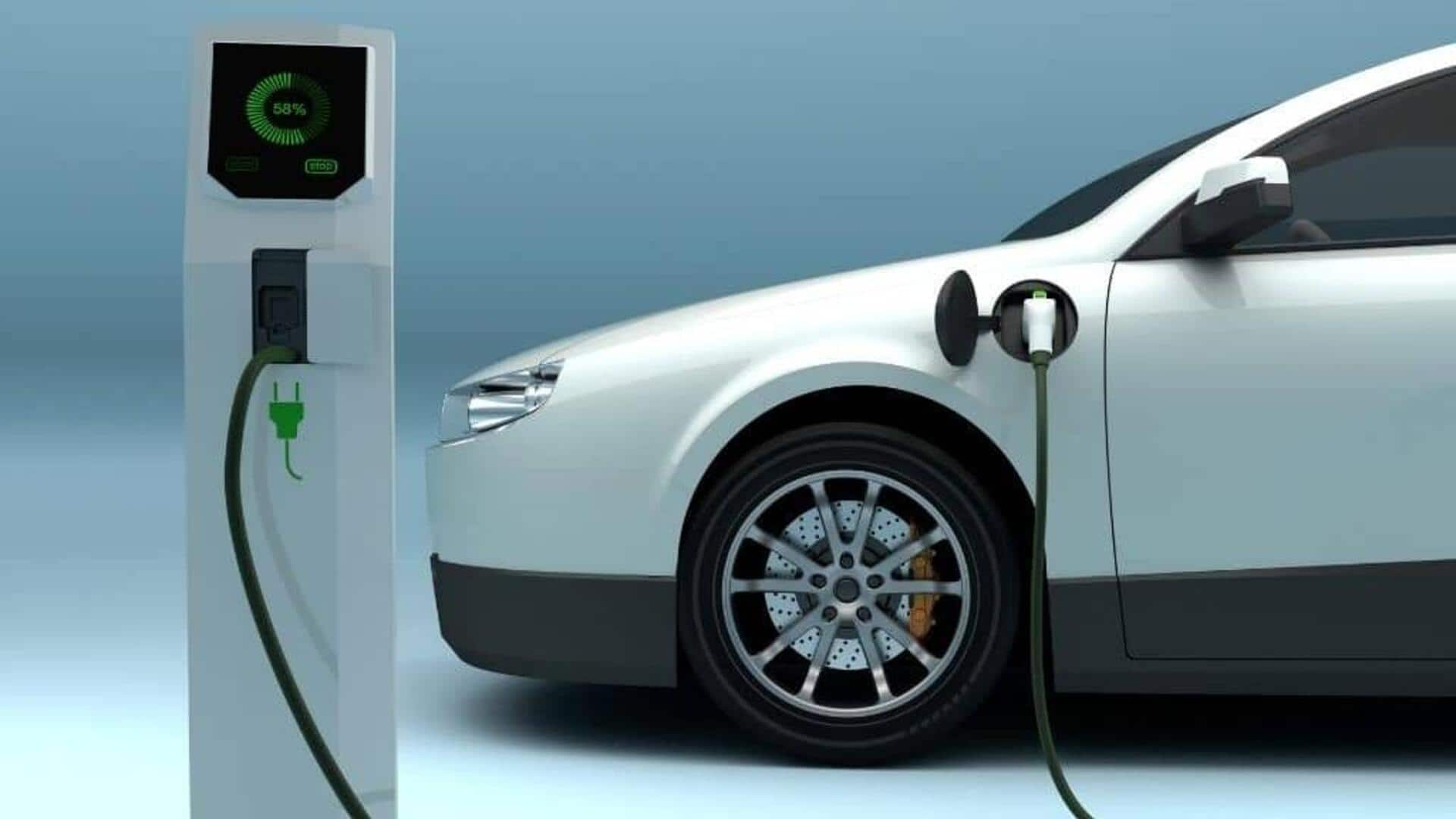
Why global automakers are uninterested in making EVs in India
What's the story
A month after the launch of a major policy to promote electric vehicle (EV) manufacturing in India, the government has yet to receive any applications. The policy, called "Scheme for Promotion of Manufacturing of Electric Passenger Cars in India" (SPMEPCI), was launched by Heavy Industries Minister H D Kumaraswamy. At that time, he said that many global original equipment manufacturers (OEMs) were interested in this initiative.
Application status
Policy portal open till October 21
In a recent Lok Sabha session, Minister of State for Heavy Industries B Srinivasa Varma revealed that the SPMEPCI portal will remain open until October 21 this year. However, as of July 16, no responses have been received on it. This raises questions about the effectiveness and appeal of the policy among global car manufacturers.
Market response
Discussions at highest levels, says industry executive
An industry executive speculated that several OEMs, including Hyundai Motor India, Kia India, Volkswagen Group and Toyota, may have submitted proposals to their boards for this scheme. However, they also cautioned that these are major decisions requiring huge investments and multiple approvals from global headquarters. "Many of the OEMs were anyway contemplating new assembly lines for electric cars so I am sure they are still discussing the implications of the policy at the highest levels," they said to ET Auto.
Policy details
Rules to apply for this policy
The SPMEPCI mandates a participating OEM to invest at least ₹4,150 crore in setting up an EV manufacturing facility in India. They also have to submit a bank guarantee of the same amount with their application. The OEM has to achieve 25% Domestic Value Add (DVA) within three years, and 50% within five years. Only OEMs with a minimum global group revenue from auto manufacturing of ₹10,000 crore, and minimum global investment in fixed assets of ₹3,000 crore are eligible.
Investment flexibility
Import of high-value cars allowed
The policy also allows brownfield investments, provided the OEM can demonstrate a new line for electric passenger cars at an existing facility under certain conditions. In return for committing to manufacture EVs in India and achieving a local sourcing level of 50% in five years, the OEM will be permitted to import a specified number of high-value cars (costing $35,000 and above) from its global plants at a concessional duty rate of 15%.
Policy criticism
Local OEMs raise concerns over stringent conditions
Some local OEMs have raised concerns over the stringent conditions set by the policy. They argue that it has excluded land investment from the total sum mandated under this policy, and defined penalties for not meeting strict DVA targets. "Who promotes a policy for encouraging incoming investment while also setting out penalties for breaching local sourcing requirements? DVA norms are quite difficult to implement," an industry insider said.